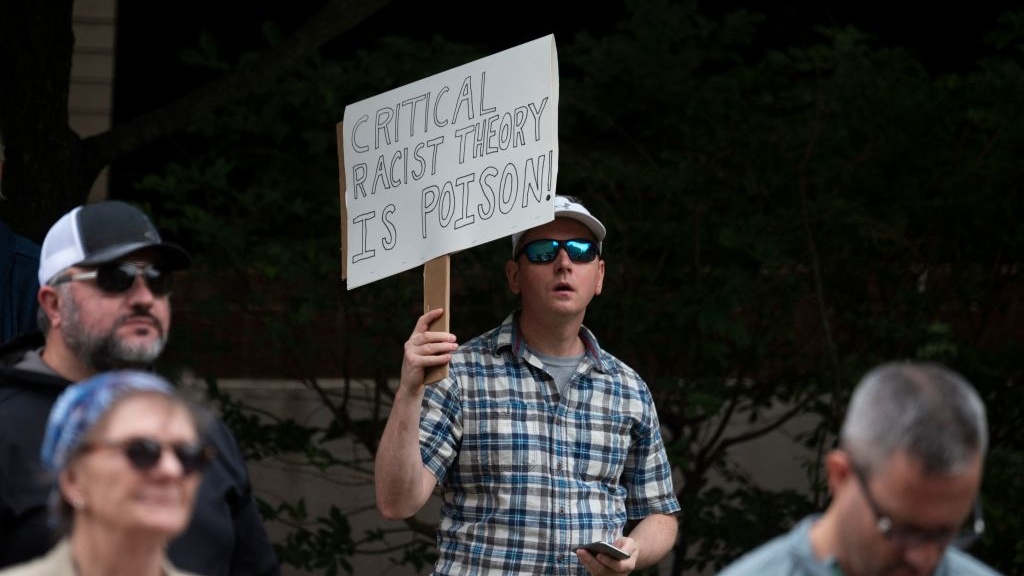The notoriously conservative Koch family is taking an unanticipated stance on the debate over critical race theory (CRT).
The Associated Press reports the family doesn't believe in the banning of philosophies.
“Using government to ban ideas, even those we disagree with, is also counter to core American principles — the principles that help drive social progress,” said Evan Feinberg, executive director of the Stand Together Foundation, an organization which has ties to the Koch family.
The vice president of The Charles Koch Foundation's philanthropy arm gave a similar argument in May.
“Both learning and research require openness to new ideas and the ability to argue productively,” Charlie Ruger wrote. “That requires standing against censorship.”
CRT has been debated for more than 40 years. But it's only been within the past few months that a number of Republican legislators, superintendents and conservative schools boards have taken extreme measures to push back against the idea of systemic racism being taught in schools. CRT bans and bills are now being introduced and passed across the U.S.
First adopted by scholars including Kimberlé Crenshaw, Richard Delgado and Derrick Bell, CRT asserts that systemic racism has, in large part, informed America's social and legislative functionings. The original framework held three tenets: race is a social construct; racism is rooted in white supremacy and embedded in legal systems and policies; and racism is a social standard that permeates all elements of our interaction.
In May, Idaho became the first state to implement a ban on the teachings of CRT in public schools and universities. Many theorists suggest that conservatives are actively seeking to squelch anti-racist and inclusion efforts.
"Any anti-racist effort is being labeled as critical race theory," said Jonathan Chism, assistant professor of history at the University of Houston-Downtown and co-editor of Critical Race Studies Across Disciplines.
Some prohibitions include Black and Indigenous authored books like Brown Girl Dreaming, The Hate U Give, The Story of Ruby Bridges, Poet X and The Color Purple. All the while, books like To Kill a Mockingbird and The Adventures of Huckleberry Finn continue to be taught, despite their offensive depictions of Black people.
Eight states — Idaho, Oklahoma, Tennessee, Texas, Iowa, New Hampshire, Arizona and South Carolina — have passed legislation, and North Carolina is likely soon to follow. Missouri already has restrictions in place despite no legislation formally passing, and 22 other states have introduced or plan to introduce similar legislation, according to NBC News.
According to Vox, teachers and administration who continue to teach banned material are facing severe consequences. A Tennessee high school teacher was fired after teaching Ta-Nehisi Coates' essay, "The First White President," and playing a spoken word performance of a poem titled "White Privilege."
Like the Idaho bill, conservatives claim CRT drudges up feelings of insecurity and emotional distress for "certain students" and creates division. Teachers and parents in support of CRT say that this battle is just another form of censorship and silencing. For example, the Wisconsin Assembly Committee authors pointed out specific words that were prohibited from being used in classrooms, such as "woke," "whiteness," "white supremacy," "structural bias," "structural racism," "systemic bias" and "systemic racism."
"Many that are condemning critical race theory haven't read it or studied it intensely. This is primarily predicated on fear: the fear of losing power and influence and privilege," Chism said. "The larger issue that this is all stemming from is a desire to deny the truth about America, about racism."
Left and right, banned book lists are being dispersed to teachers as off-limits material. York, Pennsylvania, is also joining the fold with their groups of "frozen books." Titles included Brad Meltzer's children's book, I Am Rosa Parks. After student protests (and national attention), the board relented.
With Wisconsin's bill, the rules and restrictions have now fallen outside the realm of racism. The bill extends to material such as Greek and Roman mythology. Much debate went into restrictions on teaching Ruby Bridges' book because it offered no "redemption" for those who taunted and harassed Bridges. However, many parents and teachers argue that the bill is rooted in white fragility and erasure.
“Most educators didn’t know what critical race theory was until Republicans made it their main reelection vehicle," Jesse Hagopian, a high school history and ethnic studies teacher in Seattle, said, according to Vox. "But many of them are now looking it up and realizing how it is aligned with their principles, which I think is wonderful."
